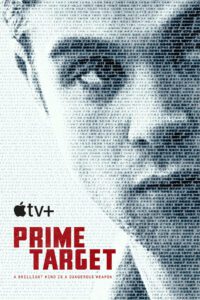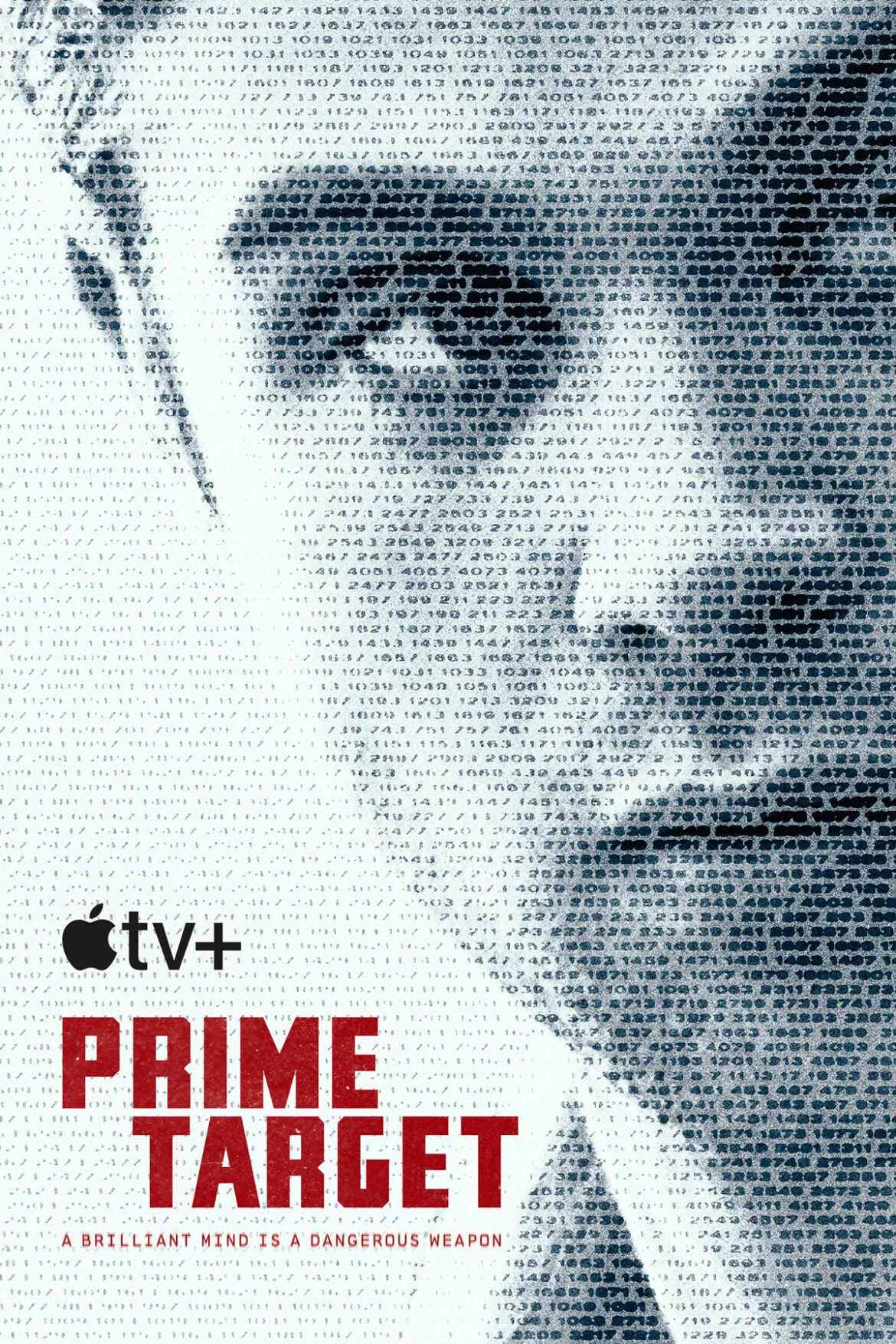
Service: Apple TV+
Series Year: 2025
Watch: Apple TV+
This is an absolutely dreadful show. It’s about maths. And, no, that’s not a typo (despite my site being full of them). The Brits call math “maths” for some unknown reason. And this is what this series is about. I’m serious. It’s one of the more and most boring “thrillers” I’ve seen in my lifetime. The fact Ms. Hipster and I managed to get through the eight long episodes should earn us a medal of some kind. Not the Fields Medal, of course, because that should go to our protagonist and maybe neurodivergent mathematician, Edward Brooks (Leo Woodall), for his work with prime numbers. His work that garners the attention of the NSA and all sorts of baddies who want him not for his body, but for his brains. Yes, the “prime” in Prime Target relates to prime numbers. Maths!!!
I honestly don’t understand who greenlit this thing. The story is poor. The writing is poor. The acting is poor. And, as I mentioned above, it’s boring. A young man whose only weapon is a floppy backpack and ASD. I don’t have a ton of experience with Woodall outside of season two of White Lotus, but I’m hoping this whole dead-eyed, skulking thing is just what they told him the character called for. A dialed-back Rain Man act, with single-minded focus on the numbers. More Abed from Community, I guess. It’s pretty dreadful. But his acting is heads and shoulders above the rest of the cast. We all have nostalgia for Martha Plimpton, but The Goonies and Parenthood were a long time ago. Her portrayal of NSA manager, Jane Torres, borders on unwatchable. She overacts in a gravelly baritone and scowls pretty much the entire series in a deeply unpleasant performance. While not divisive in the same way, Quintessa Swindell’s portrayal of her NSA underling, kind-of adoptive daughter and hacker rebel, Taylah Sanders, is amateurish and wincingly unconvincing. Also, Stephen Rea. I know he’s famous and was married to that lady bomber from Say Nothing, but he is a truly annoying actor. A man who has made his career out of a completely flat affect, mumbling and narrowing his eyes from under a mop of hair. It’s the same thing every time and it’s gotten old. Let’s not hire him anymore, shall we?
But here’s the thing: even worse than the acting is the narrative. This math student who is really into prime numbers, which puts him on the radar of the NSA. Yes, the US agency responsible for gathering info from around the world. Which, in this case, literally means putting cameras in the offices and homes of a bunch of math nerds. I’m not kidding. They have a spying operation that includes people sitting watching monitors all day of these mathematicians in England writing on whiteboards, typing stuff, sleeping and presumably doing their business (if you know what I’m saying). They send their reports to some mysterious organization that is maybe not the NSA every night? Maybe? Who knows. But one of these agents assigned to this incredibly cumbersome and unrealistic endeavor is the aforementioned Taylah Sanders. She sits watching dudes all day long write equations on boards. Sit at their desks. And maybe, in the case of Edward, have sex with his local bartender, Adam (Fra Fee). But at some point she sees something she shouldn’t — or asks too many questions of what she’s seen — and the NSA or some other nefarious unit turns on her and makes her the target. But also Edward is the target? Because maths.
The most outrageous part of all this is Taylah’s magic laptop. She pulls it out of her bag no matter where she is: boats, trains, rooftops, cellars, fields and instantaneously gets absolutely perfect wi-fi. She hits a bunch of keys and is able to disable traffic cameras around London, re-rout flights, get detailed info on any and every human being on the planet — including personal stuff that would have no business being in the database anywhere — and basically just work incredible magic with a couple keystrokes. And here’s the issue with that: the whole crux of the series is that the prime numbers math theory that Edward is developing will be able to unlock any digital key in the world. It would be able to decrypt systems, top secret and otherwise. Because all encryption is based on prime numbers, I guess. So, if his theory fell into the wrong hands, everything would be open season. The thing is, Taylah’s magic laptop already seems to be able to do that. Every bit of encryption and security she runs up against on the show — and she runs into a lot — she’s able to circumnavigate within seconds. Need that bank account info? Taylah’s magic laptop! Need that social security or passport info? Taylah’s magic laptop! Secret CIA files about a Middle Eastern spy ring? You got it, Taylah’s magic laptop! If Taylah can unlock all this info on her HP from Best Buy, why do we need Edward’s prime key? Seems all we need is this NSA hacker person and her compact super computer.
Along the way, we get some cat and mouse chases that go on for too long, a few goofy murders that make no sense and generally a pretty flabby thriller that keeps bogging down because it’s ultimately about a guy scribbling formulas in a notebook. No, they literally spend minutes and minutes of time showing us Woodall writing math formulas. And unless you’re a mathematician, you will never know if this is real stuff or just a bunch of nonsense. You know what’s not compelling? Watching someone write a bunch of stuff that you will never understand. It’s filler. And dull filler at that. I usually say the opposite here, but this should have been a movie. If they wanted to talk about the global threat of math and the battle between those who wish to control that math and those who wanted to unleash it, you could have told that story in a nice, two-hour package. We can skip the formula writing and the 37th instance of Taylah disabling something with her laptop. There’s some absolute tomfoolery with an ancient, underground mosque in Syria that has such a tenuous connection to the plot that it felt like Apple just trying to cynically internationalize another one of their shows beyond Europe to gain audience somehow. And we spend quite a bit of time on it. Point is, eight hours is at least six hours too long to tell this story. Maths continue to not impress.


